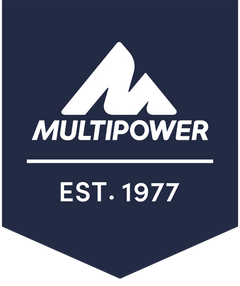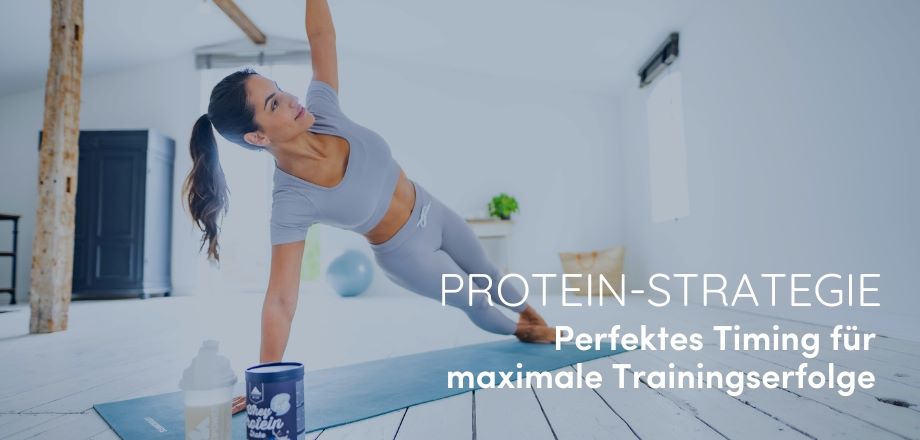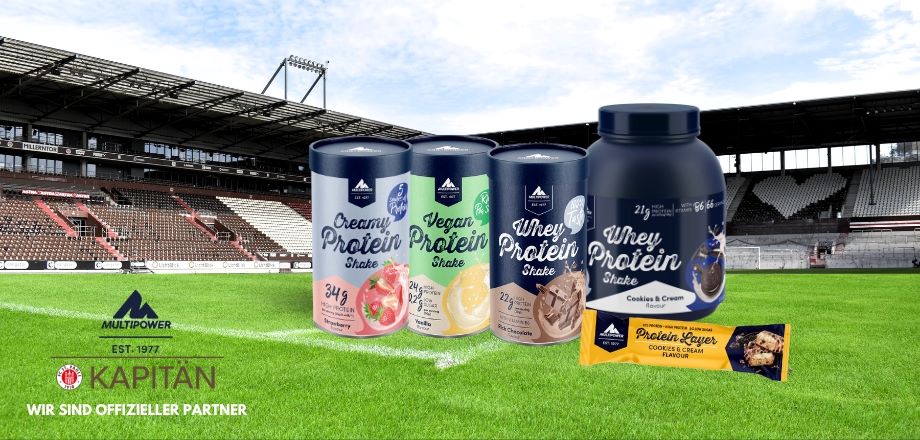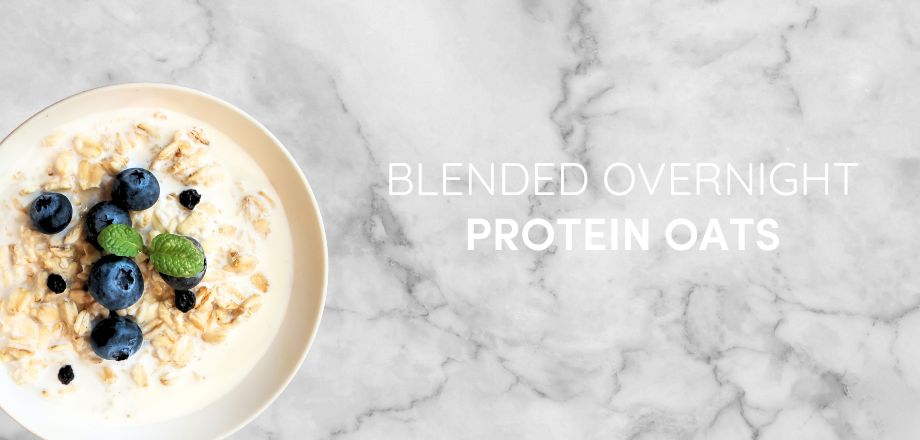Muscle building despite vegan diet?
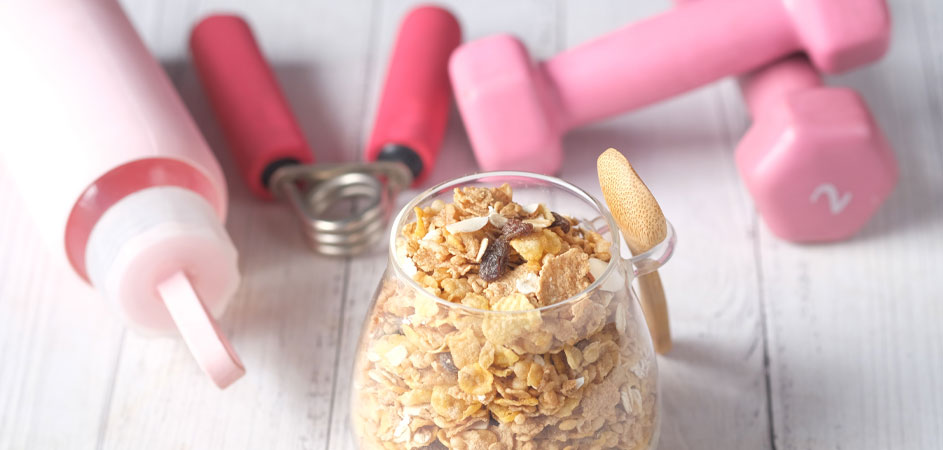
You should pay attention to this with a vegan diet
Without meat, eggs and milk: More and more people are opting for a vegan diet. What does it mean to eat a purely plant-based diet? What do you have to look out for in a vegan menu? And how do you build muscle with vegan foods? Here we provide you with the answers.
Vegan diet
A vegan diet completely avoids animal products. Anyone who chooses this form of nutrition eats neither meat, fish nor honey and also no dairy products or eggs. If you live vegan, you also pay attention to the avoidance of animal materials such as leather in clothing. In addition, cosmetics, care products and cleaning agents are only used if they are free of animal ingredients. This way of life is called veganism.
According to the BMEL Nutrition Report 2020/2021, 2 percent of the population in Germany now eats vegan - and more and more are coming. There are many reasons for a purely plant-based diet. Animal welfare is a priority for many. But sustainability and environmental protection as well as health aspects also motivate people to remove animal-based foods from their diet.
What do vegans eat:inner?
Renunciation sounds negative at first, but vegans still have plenty of food with which they can fill their plates in a variety of ways.
- vegetables and fruit
- whole grains and potatoes
- Legumes and other protein sources
- nuts and seeds
- Plant-based milk alternatives
- Plant-based meat alternatives
Is a vegan diet healthy?
Are you wondering if a diet based solely on plant-based foods can even be healthy? Yes, it can - as long as you pay attention to a few things. In general, it is true that in every form of nutrition - regardless of whether it is meaty, flexitarian, vegetarian or vegan - balance is important. If you eat a varied diet and take your nutritional needs into account, a vegan diet is quite healthy. We'll show you how to get enough nutrients without meat, milk and the like.
Protein requirements in a vegan diet
No matter what diet you follow, protein is an essential macronutrient that should make up about 15 to 20 percent of your daily calorie intake. Proteins have many tasks in the body: they are involved in building and maintaining muscles and organs, and they also act as enzymes and hormones in the metabolism.
A question that vegans get asked over and over again: where do you get your protein from?! Meat, dairy products and eggs do not necessarily have to serve as protein suppliers - plant foods also contain plenty of protein.
Vegan protein sources
- Pumpkin seeds (37 g protein per 100 g)
- Seitan (28 g protein per 100 g)
- Red lentils (26 g protein per 100 g)
- Flaxseed (22 g protein per 100 g)
- Rolled oats (14 g protein per 100 g)
- Walnuts (14 g protein per 100 g)
- Tofu (13 g protein per 100 g)
- Quinoa (12 g protein per 100 g)
Vegan people can use the same reference values for protein intake as omnivores. The general recommendation is 0.8 g of protein per kg of body weight. However, if you do a lot of sport, you should aim for a higher intake – around 1.1 to 1.3 g per kg of body weight. The macronutrient protein becomes even more important when it comes to building muscle.
Building muscle with a vegan diet
When building muscle, increased calorie and protein intake are the be-all and end-all, along with strength training. Tissue can only be built up if you have a positive energy balance – i.e. you consume more calories than you expend. The guideline here is around 200 to 300 calories. The daily target for protein supply should be 1.6 g protein per kg body weight.
Proteins are made up of amino acids. The human body can produce part of it itself. Others, on the other hand, must be ingested through food, which is why one speaks of essential amino acids. These are very important for building muscle. In general, plant-based foods are less likely to contain all of the essential amino acids at once than animal-based foods. This has a negative effect on the biological value – i.e. how well the body can utilize the proteins. It is therefore important with a vegan diet to rely on various protein sources in order to guarantee a supply of all essential amino acids and to increase the biological value. But there are also a few vegan protein sources with all the essential amino acids, which score with a high biological value.
Vegan protein sources with all essential amino acids
- Chia seeds
- hemp seeds
- quinoa
- Edamame
- tofu
- buckwheat
- Multipower Vegan Protein
Make sure to spread your protein intake evenly throughout the day. Muscles benefit the most when you consume protein at regular intervals. This affects your main meals on the one hand, but also all meals in between. With the Protein Layer Vegan, Multipower offers you the perfect plant-based protein snack for in between meals. The vegan protein bar in the flavors brownie and peanut butter provides a strong 13 g of protein.
Protein intake is essential, especially after exercise. The training gives the muscles a stimulus - if they are then supplied with proteins, this fuels growth. That's why we recommend that you consume a large portion of vegan protein after your workout. With a protein shake with Multipower Vegan Protein you will then make the right decision. The mix of soy, pea and rice protein contains all the essential amino acids and thus ensures that your muscles are optimally supplied. In the flavors vanilla and chocolate, the shake is guaranteed to sweeten the time after your workout.
Critical nutrients in a vegan diet
A balanced vegan diet with plenty of fruit, vegetables, legumes and grains will cover most of the nutrients. However, some are considered critical because the supply without animal-based food is not guaranteed. You have to pay special attention to these - if necessary, supplementation with the help of dietary supplements is recommended.
Vitamin B12
Plant-based foods contain practically no nutrient at all, which is why vitamin B12 should definitely be taken as a dietary supplement in a vegan diet.
Vitamin D
Since vitamin D is mainly found in fatty fish and eggs, vegans hardly get the nutrient from food. However, the majority of the vitamin D supply is guaranteed anyway by the synthesis of the human body with the help of sunlight. Since the sun is often too weak for this in the autumn and winter months in our latitudes, the development of a vitamin D deficiency is not uncommon - regardless of the diet. It can therefore make sense to take supplements.
Omega-3 fatty acids
With a mixed diet, people get omega-3 fatty acids mainly from fatty fish. However, the omega-3 fatty acid alpha-linolenic acid (ALA) is also found in plant-based foods such as linseed, chia seeds, rapeseed oil, walnuts and hemp seeds. Two other important omega-3 fatty acids, eicosapentaenoic acid (EPA) and decosahexaenoic acid (DHA), can be made in the body from ALA given the right conditions, such as large amounts of ALA. Since these are rarely given, it makes sense as a vegan to supplement EPA and DHA. As a herbal food supplement in the form of drops or capsules, these omega-3 fatty acids come from microalgae oils.
iodine
The trace element is found in abundance in fatty sea fish and seafood. Vegetarians and vegans ensure a sufficient supply of iodized table salt or algae.
calcium
Daily calcium requirements can also be met without dairy products – with green vegetables (kale, chard, spinach), calcium-rich mineral water and calcium-enriched plant drinks.
iron
Instead of red meat, legumes, nuts, seeds and whole grains serve as iron suppliers in a vegan diet. In combination with vitamin C, the human body can absorb vegetable iron particularly well.
Conclusion on the vegan diet
With a close look at protein intake and critical nutrients, a vegan diet is perfectly healthy. If you want to build muscle, you should rely on particularly high-quality proteins with all the essential amino acids (such as Multipower Vegan Protein) on a purely plant-based menu - this way, your personal training goal is guaranteed to be achieved.
